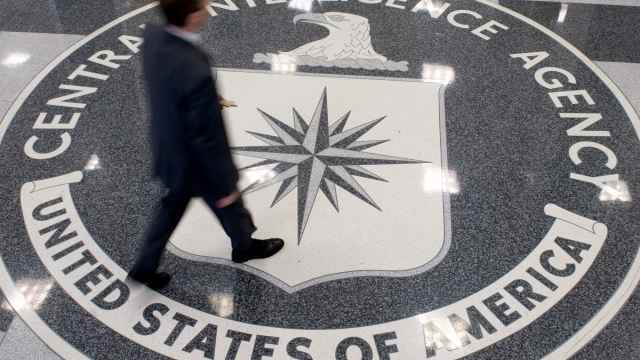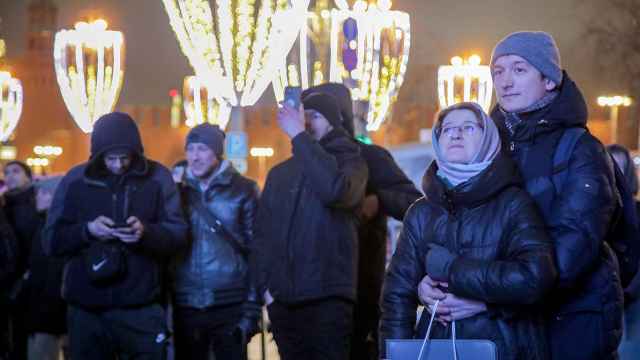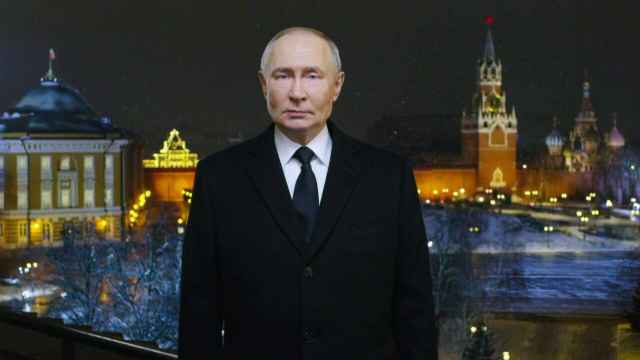The government wants the country’s smallest banks to raise their capital to at least 300 million rubles, or $10 million, by 2015 and is looking to increase competition among lenders, Finance Minister Alexei Kudrin said Monday.
The minister was speaking at a government meeting that mapped out a development strategy for the banking sector over the next five years.
Kudrin said he was sure that the 372 banks currently below the 2015 threshold would take the new target in stride.
“We are confident that we will clear that bar as well,” he said at the meeting attended by Prime Minister Vladimir Putin, Central Bank Chairman Sergei Ignatyev and other government officials, which continued uninterrupted, despite the deadly bomb attack at Domodedovo Airport.
Since January last year, banks have had to maintain a minimum of 90 million rubles in capital — a requirement that has strained the more than 100 smaller banks.
As an intermediary goal in meeting the requirement, all banks are required to ensure that their capital exceeds 180 million rubles by next year.
Kudrin mentioned that the strategy's other goals would include increasing competition on the market and promotion of high technology, but he didn't elaborate, according to a transcript of the meeting posted on the Cabinet's web site.
The minister noted that banking services were less profitable than steel making or energy generation. Banks posted a combined profit of 161 billion rubles in the first nine months of last year, while steel makers showed a total net income of 360 billion rubles and energy companies 250 billion over the same timespan, he said.
Putin was upbeat in summarizing the banking sector's performance last year. Bank deposits grew 30 percent to 9.8 trillion rubles last year, he said.
“This tells of the trust that people have in banks,” he said.
Loan portfolio grew 12 percent to 18 trillion rubles, Putin said. Of that amount, 4 trillion rubles was given to individual borrowers, he said.
Mortgage loans grew 150 percent last year compared with the previous year, while the average ruble rate dropped to 12.8 percent by the end of last year from 14.2 percent from past January.
In other changes, Putin said the number of bank cards increased to 140 million last year.
The Cabinet said in a statement Tuesday that 955 banks and 57 other lenders currently operate in the country. Their assets grew 13.7 percent to 33.5 trillion rubles as of the start of this year, it said. The sector employs 800,000 people, the statement said.
Central Bank Chairman Sergei Ignatyev predicted that assets, capital and loans would grow at a rate of 17 percent to 20 percent over the next five years.
Putin noted that the Central Bank revoked licenses from 27 banks last year, down from 44 in 2009.
Kudrin said banks' assets amount to 75 percent of the country's gross domestic product. Capital was 12 percent of GDP, while outstanding loans were 41 percent of GDP.
Bad debts owed by individuals stand at 7.3 percent of total loans, while bad corporate debts are 5.6 percent, Kudrin said.
Before the meeting, Putin visited the Central Bank's main vault in Moscow to take a look at 6,100 boxes containing 766.5 metric tons of gold bullion stored there, including the 136.6 tons the bank bought last year.
About two-thirds of the country’s gold and currency reserves are stored in the vault.
A Message from The Moscow Times:
Dear readers,
We are facing unprecedented challenges. Russia's Prosecutor General's Office has designated The Moscow Times as an "undesirable" organization, criminalizing our work and putting our staff at risk of prosecution. This follows our earlier unjust labeling as a "foreign agent."
These actions are direct attempts to silence independent journalism in Russia. The authorities claim our work "discredits the decisions of the Russian leadership." We see things differently: we strive to provide accurate, unbiased reporting on Russia.
We, the journalists of The Moscow Times, refuse to be silenced. But to continue our work, we need your help.
Your support, no matter how small, makes a world of difference. If you can, please support us monthly starting from just $2. It's quick to set up, and every contribution makes a significant impact.
By supporting The Moscow Times, you're defending open, independent journalism in the face of repression. Thank you for standing with us.
Remind me later.





